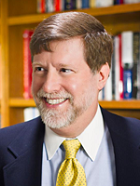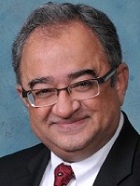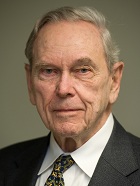 |
"The Muslim Debate" a project of MUSLIM Institute for online debates has started a new debate on "The present day turmoil in the Middle East & North Africa has its roots in the European Colonial era". This debate has gone live on 20th October, 2014. Based on famous Oxford style debate, there are two debaters participating in the debate whereas one guest is also invited for valuable input. The debate will be live for twenty one days whereas the voting will be open for twenty days. The readers are welcome to follow the stages of debate through opening, rebuttal and closing to be able to vote for or against the motion. However the voting system is not restricted and the readers are encouraged to vote as many times as they change their mind.
After almost four years since the ‘Arab Spring’ took off in Tunisia, the region of Middle East & North Africa is far from peaceful. Multiple waves of democratisation throughout the region have resulted in loss of large number of precious lives and an ongoing complicated civil war in Syria, Iraq as well as Libya to which an end often looks pessimistic.
 |
However, this debate brings to you an attempt to find out, by productive argumentation, whether the present day turmoil in the Middle East & North Africa has its roots in the European Colonial era of 19th and 20th Centuries. That whether the "borders in the sand" drawn by the Colonial Powers via the then secret Sykes-Picot agreement in 1916 bear responsibility for the ongoing tensions in the Levant? Or is it something that has been brought upon by the errors of commission or omission by the rulers of the Middle Eastern and North African states themselves? Are political ideologies from within the region or with deep vested interests from outside the region such as nationalism, Arabism, socialism, Islamism, communism or capitalism responsible for the present strife and the ongoing conflicts in this strategic region with abundant resources?
 |
Dr. Mark N. Katz, Professor of Government & Politics - George Mason University, USA is defending the motion of debate. He received a B.A. in international relations from the University of California at Riverside in 1976, an M.A. in international relations from the Johns Hopkins University School of Advanced International Studies in 1978, and a Ph.D. in political science from the Massachusetts Institute of Technology in 1982. He has been a professor at George Mason University in Fairfax, Virginia, since 1988. He is the author of The Third World in Soviet Military Thought (Johns Hopkins University Press, 1982), Russia and Arabia: Soviet Foreign Policy toward the Arabian Peninsula (Johns Hopkins University Press, 1986), Gorbachev's Military Policy in the Third World (Center for Strategic and International Studies, 1989), Revolutions and Revolutionary Waves (St. Martin’s Press, 1997), Reflections on Revolutions (St. Martin’s Press, 1999), and Leaving without Losing: The War on Terror after Iraq and Afghanistan (Johns Hopkins University Press, 2012).
 |
Mr. Tarek Fatah, writer, broadcaster & columnist - The Toronto Sun, Canada, is participating as debater against the motion. He is the author of two prize-winning books, "Chasing a Mirage: The Tragic Illusion of an Islamic State (2008)" and "The Jew is Not My Enemy (2010)." A weekly columnist for the Toronto Sun, Fatah hosts a weekly Sunday afternoon talk show on Toronto's leading radio station NewsTalk1010. Born in 1949, Fatah in 1960s started his career as journalist with the now defunct Karachi Sun in 1970 going on to be a News Producer with Pakistan Television PTV until 1978. He spent the 1980s as an advertising executive in Saudi Arabia before moving to Canada.
 |
Former US Ambassador to Syria & Saudi Arabia, Mr. Richard W. Murphy is participating as the guest in the debate. He after service in the U.S. Army, joined the foreign service of the State Department and from 1955-68 served in Salisbury, Southern Rhodesia (now Zimbabwe); Beirut, Aleppo, Jeddah and Amman. He spent 1968-71 in Washington, D.C., as Country Director for the Arabian Peninsula and Director of Personnel for the Near Eastern Bureau. In 1971, he was nominated as Ambassador to Mauritania and in 1974 he became Ambassador to Syria. He then served as Ambassador to the Philippines and Saudi Arabia. From 1983-1989 he served as Assistant Secretary of State for Near Eastern and South Asian Affairs. After retiring from government service in 1989, and until the summer of 2004, Mr. Murphy served as the Hasib J. Sabbagh Senior Fellow for the Middle East at the Council on Foreign Relations in New York, and has continued to visit that region several times a year. He is now an independent consultant based in New York City. He is a Director of the American Friends of UNRWA and was its founding chair, on the Board of the Foundation for Middle East Peace, former Chairman of the Middle East Institute in Washington (1993-2001) and a trustee emeritus of the American University of Beirut.
You are encouraged to participate by voting and also by sending your comments to the moderator who will then single out the most captivating ones for discussion on the forum at
The Muslim Debate Website.
Download
|

